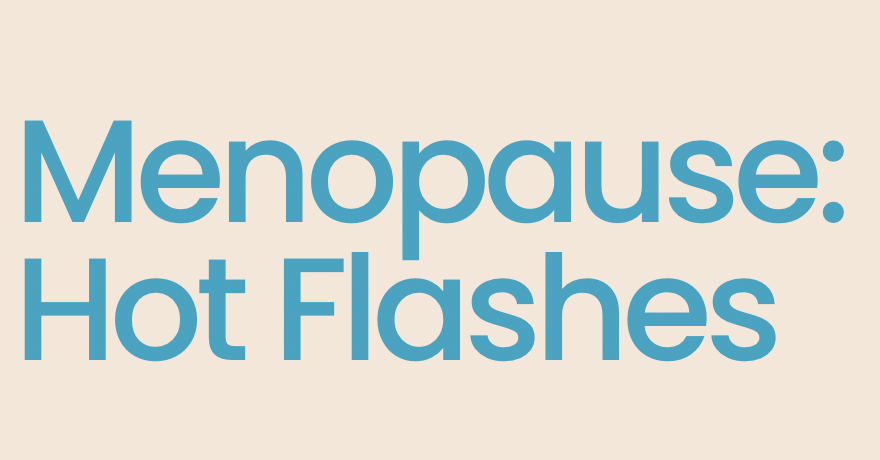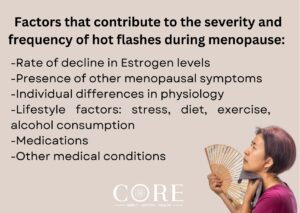Is it hot in here or is it hot flashes?

What are hot flashes?
Hot flashes are a common symptom of menopause, which is the time in a woman’s life when her menstrual periods stop and she is no longer able to bear children. The exact cause of hot flashes is not fully understood, but they are believed to be related to changes in the levels of hormones in the body that occur during menopause.
What is it with menopause and hot flashes?
During menopause, the ovaries stop producing estrogen which is a hormone that helps regulate the menstrual cycle and maintains bone density. Decline in estrogen levels can cause the body’s thermoregulatory system, which helps maintain a stable body temperature, to become less effective.
This can cause the blood vessels in the skin to dilate leading to a feeling of warmth and flushing. The hypothalamus, a part of the brain that helps regulate body temperature, may also be affected by the decline in estrogen levels, leading to hot flashes.
Factors that affect severity and frequency of menopause symptoms
There are many factors that can contribute to the severity and frequency of hot flashes during menopause. These can include among others, the following:
- Rate of decline in estrogen levels
- Presence of other menopausal symptoms
- Individual differences in physiology
- Lifestyle factors such as stress, diet, exercise, alcohol consumption, etc.
- Other medical conditions such a thyroid problems, etc
- etc.
The way each woman experiences this symptom is varied- some women may have only a few hot flashes, while others may have many that are severe. Hot flashes can be one of the most distressing symptoms of menopause and can interfere with your daily activities, sleep and even self esteem.


